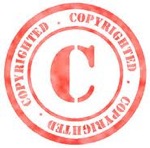 One of the points often made by supporters of the Google Books fair use ruling is that if copying material to build a search index is not legal, then so is the entire underpinning of the web, which relies on being able to make digital copies and index them.
One of the points often made by supporters of the Google Books fair use ruling is that if copying material to build a search index is not legal, then so is the entire underpinning of the web, which relies on being able to make digital copies and index them.
Lest you believe nobody would try to make that claim, Ars Technica reports on a European Union Court of Justice ruling which saw an organization of newspapers try to claim that browsing the web amounted to copyright infringement due to the digital copies of material made on people’s computers while they read it. The Newspaper Licensing Agency tried to claim that web browsing “requires the authorisation of the copyright holders” because of such copying.
The court ruled that the lower courts had it right: web browsing fit the requirements for infringement exemptions listed in the EU Copyright Directive. (These exemptions included transient copies made as part of a technological process, which fits web browser caching to a T.)
The NLA, which distributes reproductions of newspaper content to public relations companies, thought those licensing fees should be considered in material temporarily copied to computers. The NLA’s managing director felt those transient copying exceptions were meant to apply to ISPs and telecoms companies’ internal transmission of data, not web browsing.
Happily, the court decided web browsing is still legal in Europe.
"Despite the ruling, one cannot overstate how irrational this case was to begin with. It’s hard to believe the question at stake was whether browsing the Internet is legal or not," said Jakob Kucharczyk, the Brussels director for the Computer & Communications Industry Association. "Even though the court has provided a clear answer to that question, one must wonder whether our copyright regime is apt for the digital era."
It does tend to make you wonder just what publishers would do if they thought they could get away with it, doesn’t it?

































We’d be seen as rather naive if we didn’t recognize the fact that copyrights, patents, trade marks etc. are used as offensive as well as defensive weapons. Although that wasn’t the intent of the framers of the US Constitution, copyright has indeed become a cudgel.